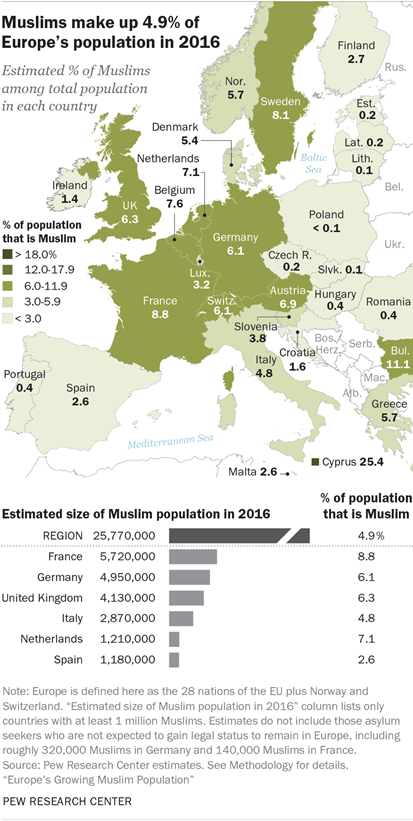EU diplomats in the Middle East will try to undermine Donald Trump's plan to establish Jerusalem as Israel's capital.
The blueprint for the EU counter-measures was contained in a
confidential report filed by EU states' ambassadors in East Jerusalem
and Ramallah, in Israeli-occupied Palestine, after the US president, on 6
December,
unilaterally recognised Israel's claim to the holy city.
Trump's decision was "a fundamental shift in US policy", the 49-page EU report, seen by EUobserver, said.
"This is the first time that one of the final status issues has been
subject to a policy change by a third party since the … Oslo Accords [in
1993]," the report added.
EU leaders should send out a "common message", the text said, that
Europe will "continue to respect the international consensus" that
Jerusalem should be shared by Israel and Palestine in a two-state
solution.
EU states should also "ensure that the location of their diplomatic
missions remains in line with its provisions on location until the final
status of Jerusalem is resolved," the report said, after Trump promised
to move the US embassy from Tel Aviv to Jerusalem.
The EU report on Jerusalem is a yearly exercise meant to steer talks by ministers in Brussels.
The 2017 edition contained several new recommendations designed to hamper Trump's plan.
It urged EU capitals: to push their line on Jerusalem in all "bilateral
and multilateral contacts" in 2018; to "unequivocally oppose" Israeli
laws to alter the city's status; and to consider "development of further
actions on distinguishing between the territory of the state of Israel
and the occupied territories".
Previous EU actions included blocking grants for Israeli settler firms
and publishing label guidelines for settler products in European
retailers.
The 2017 report also called for "systematic media outreach in support of … [the] EU policy on Jerusalem".
It said high-level EU visits to the city should "ensure that logistics
follow EU policy, e.g. through choice of hotel, change of transport
between East and West", referring to Israeli-occupied East Jerusalem and
Israel's West Jerusalem.
There was less violence in the city last year despite some
"confrontations" between Palestinian protesters and Israeli police after
Trump's announcement, the EU text noted.
Thirteen Palestinians and seven Israelis were killed in violent
incidents in total in Jerusalem in 2017, compared to 23 people the year
before, and 41 the year before that.
But Israeli settlers were seizing Palestinian land at a "record" pace
"including in areas identified by the EU and its member states as
[being] key to the two-state solution", the EU report warned.
Israel advanced plans for more than 3,000 housing units in East Jerusalem last year, it said.
This added to the 215,000 settlers who have moved there since Israel
conquered it in 1967 to live among the 317,000 Palestinians who are
still left.
"Developments in 2016 to 2017 indicate that the Israeli authorities are
taking active measures to prepare for settlement expansion in [the E1]
area," the EU ambassadors added, referring to a zone that would cut off
East Jerusalem from the rest of the West Bank and cut the West Bank into
two cantons if it fell into settlers' hands.
The EU said Israeli prime minister Benjamin Netanyahu had systematically ignored its appeals on the issue.
"International objections were met by more announcements [of settlement expansion]," the EU ambassadors said.
The diplomats painted a grim picture of life under Israeli occupation.
They spoke of Israel's "long-standing policy of political, economic, and
social marginalisation" of Palestinians, which "worsened" last year and
which caused the kind of "high levels of stress and depression" that
were fertile ground for violence.
They condemned killings on both sides, but singled out Israeli soldiers for "excessive use of force".
They also said Palestinian economic activity in East Jerusalem halved
over the past 10 years and that 75 percent of Palestinians now lived
below the poverty line.
That figure rose to 84 percent among Palestinian children, half of whom dropped out of school.
"The city has largely ceased to be the Palestinian economic, urban, and commercial centre it used to be," the EU report said.
Read more: EU diplomats plot against Trump on Jerusalem



 national targets
national targets




